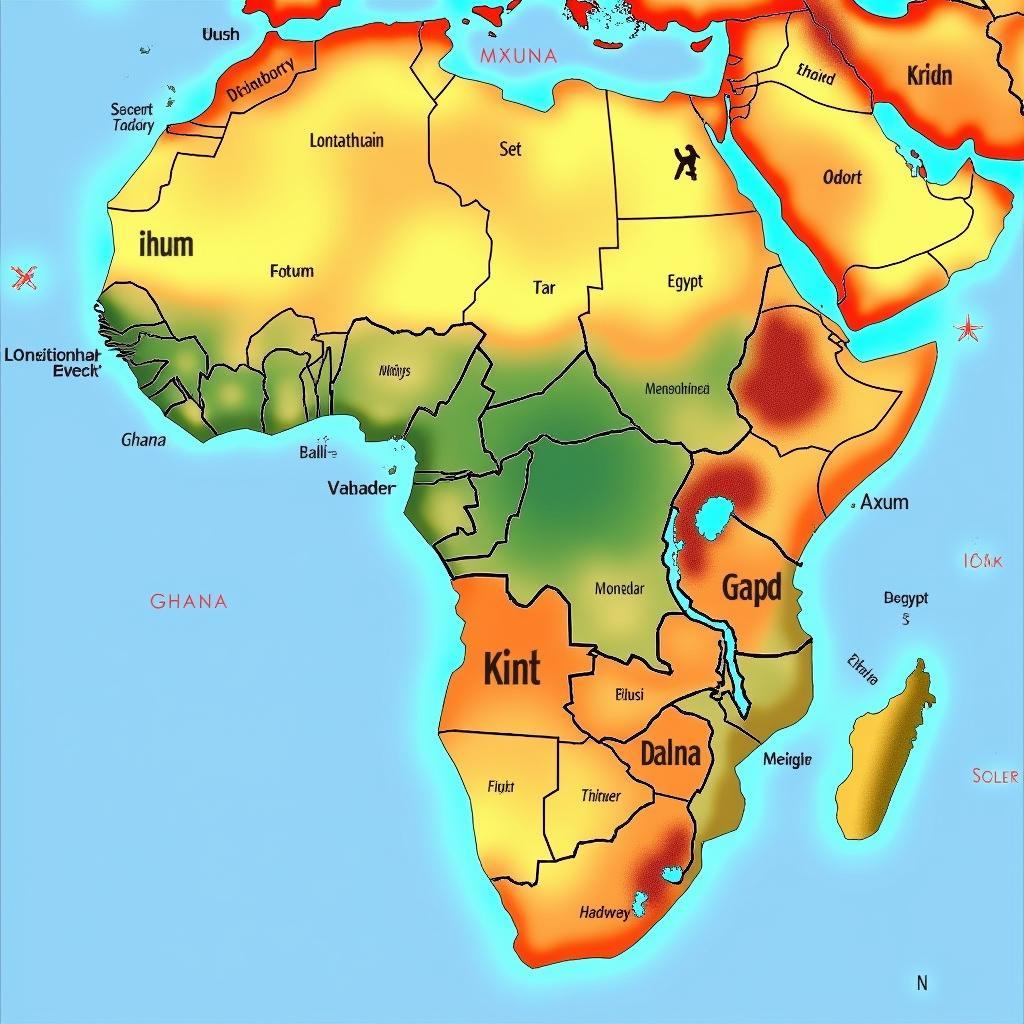Africa’s Wildlife: A Thriving Ecosystem of Diverse Creatures
Africa, a continent rich in history, culture, and natural wonders, is also renowned for its exceptional wildlife. Home to an astonishing array of species, the African landscape boasts a diversity that is unmatched on the planet. From the mighty lion to the graceful giraffe, the continent’s wildlife is a captivating blend of beauty, strength, and resilience. This article delves into the fascinating world of Africa’s wildlife, exploring its unique characteristics, the threats it faces, and the crucial role it plays in the global ecosystem.
The Big Five: Iconic Symbols of African Wildlife
The term “Big Five” refers to five iconic African animals that were historically considered the most challenging and dangerous to hunt. These majestic creatures, namely the lion, elephant, rhino, leopard, and buffalo, continue to enthral wildlife enthusiasts worldwide.
The Lion: King of the Savanna
The lion, with its golden mane and powerful roar, symbolizes the untamed spirit of Africa’s savanna. The lion is a social animal, living in prides led by a dominant male. These prides work together to hunt, defend their territory, and raise their cubs.
The Elephant: Gentle Giant
The African elephant, the largest land animal on Earth, is a symbol of wisdom and strength. Elephants are highly intelligent and social creatures, known for their complex communication and familial bonds.
The Rhino: Endangered Majesty
The rhino, with its distinctive horns and thick skin, is a symbol of power and endurance. Sadly, these magnificent creatures are critically endangered due to poaching.
The Leopard: Shadowy Hunter
The leopard, a skilled and stealthy predator, is a symbol of grace and agility. These solitary hunters are known for their ability to climb trees and camouflage themselves in the dense undergrowth.
The Buffalo: Powerful Herd Animal
The buffalo, a strong and aggressive herbivore, is a symbol of unity and resilience. Buffalo live in large herds, offering protection from predators and sharing resources.
Beyond the Big Five: Diverse Ecosystems & Wildlife
Africa’s diverse ecosystems are home to a wide range of wildlife, from the grasslands of the savanna to the dense rainforests of the Congo Basin.
Savanna: A Symphony of Life
The African savanna is characterized by its open grasslands, scattered trees, and diverse wildlife. Here, you’ll find zebras, wildebeest, antelopes, cheetahs, hyenas, and wild dogs.
Rainforests: A World of Wonders
The rainforests of Central and West Africa are home to a vast array of life, including gorillas, chimpanzees, okapis, elephants, and various primate species. These forests are also home to countless bird species, reptiles, and insects.
Deserts: Life Against the Odds
Africa’s deserts, such as the Sahara and the Kalahari, are surprisingly diverse ecosystems. Despite harsh conditions, they support a variety of animals including ostriches, gazelles, fennec foxes, and various reptiles.
Threats to African Wildlife
Africa’s wildlife faces many threats, including habitat loss, poaching, climate change, and human conflict.
Habitat Loss: A Declining Home
As human populations grow, natural habitats are being cleared for agriculture, development, and infrastructure. This habitat loss directly threatens wildlife populations.
Poaching: An Illegal Trade
Poaching, the illegal hunting and killing of animals for their body parts, is a major threat to many African species. Elephant tusks, rhino horns, and leopard skins are sought after in the illegal wildlife trade.
Climate Change: A Shifting Landscape
Climate change is altering rainfall patterns, increasing temperatures, and impacting water availability, creating challenges for wildlife to adapt.
Human Conflict: Competing for Resources
Human conflict, often fueled by competition for resources, can lead to the displacement or destruction of wildlife populations.
Conservation Efforts: Protecting Africa’s Legacy
There are numerous conservation efforts underway to protect Africa’s wildlife. These efforts focus on habitat preservation, anti-poaching initiatives, community education, and sustainable tourism.
“African Wildlife is a Vital Part of the Planet’s Ecosystem” – Dr. Jane Goodall, renowned primatologist and conservationist.
Habitat Preservation: Protecting Wild Spaces
Conservation organizations are working to establish protected areas, national parks, and wildlife reserves to safeguard critical habitats.
Anti-poaching Initiatives: Fighting Illegal Trade
Anti-poaching units are working to combat poaching and prevent the illegal trade in wildlife products.
Community Education: Building Support for Conservation
Educational programs are empowering local communities to understand the importance of conservation and participate in efforts to protect wildlife.
Sustainable Tourism: Balancing Conservation and Development
Sustainable tourism practices are helping to generate revenue for conservation initiatives while minimizing the impact of tourism on wildlife and their habitats.
The Importance of African Wildlife
Africa’s wildlife plays a vital role in maintaining the balance of the ecosystem.
Predators: Maintaining Balance
Predators, such as lions and leopards, help to regulate prey populations and ensure the health of the ecosystem.
Herbivores: Shaping the Landscape
Herbivores, such as elephants and giraffes, shape the landscape by grazing and consuming vegetation, creating habitats for other species.
Tourists: Economic Benefits
Wildlife tourism is a major economic driver in many African countries, providing jobs and revenue for communities.
A Legacy for Future Generations
Africa’s wildlife is a valuable resource and a source of wonder and inspiration. We have a responsibility to protect it for future generations. By supporting conservation efforts, promoting sustainable practices, and educating ourselves about the importance of wildlife, we can help ensure the survival of these magnificent creatures.

